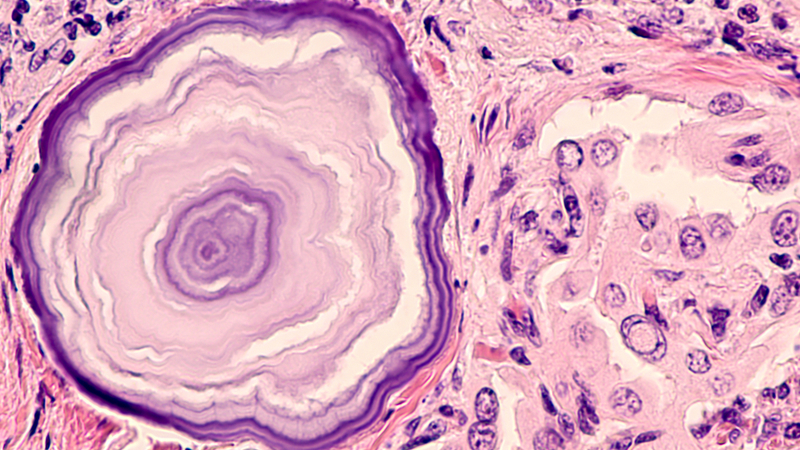Lower radiation may effectively prevent cancer recurrences in this patient group: HiLo study
M3 Global Newsdesk Nov 12, 2018
Lower doses of radiation after surgery in patients with low-risk thyroid cancer may be safe and effective in reducing disease recurrence, according to updated results from the HiLo study, presented at the 2018 National Cancer Research Institute (NCRI) Cancer Conference, Glasgow, UK.

“In our study the low activity 1.1 GBq dose was less than a third of the higher activity 3.7 GBq dose, but has been proven to be as effective,” said Jonathan Wadsley, MB, BChir, MA, MRCP, FRCR, consultant clinical oncologist, Weston Park Hospital, Sheffield, UK, and chairman, NCRI Thyroid Cancer Subgroup.
“As a general principle, we would always wish to give the lowest quantity of radiation possible to prevent the recurrence of thyroid cancer. This is to reduce the risk of longer-term side effects from the treatment, most importantly reducing the risk of the treatment causing another cancer in the future.”
In the original HiLo trial, researchers showed that post-ablation success rates at 6 to 9 months were similar between patients treated with low administered radioactive iodine (RAI) activity (1.1 GBq) and the standard high RAI (3.7 GBq). Long-term data, however, were lacking.
New results are now available after a median follow-up of 6.5 years in these patients.
For the HiLo study, Dr. Wadsley and colleagues included 434 patients with low-risk thyroid cancer who were randomized to either low RAI (1.1 GBq) or standard, high RAI (3.7 GBq). Patients were also treated with either thyrotropin alfa for injection—a genetically-engineered thyroid-stimulating hormone (TSH) that stimulates thyroid cancer cells to absorb a maximum amount of radioactive iodine—or thyroid hormone withdrawal (THW), which allows patient’s natural TSH to increase.
Researchers diagnosed and confirmed 21 recurrences (11 in patients given 1.1 GBq and 10 in those given 3.7 GBq) via serum thyroglobulin, ultrasound, fine-needle aspiration cytology, RAI scan, CT, and MRI. Three-year recurrence rates were similar between both dosing groups (1.5% vs 2.1%, respectively), as were 5-year (2.1% vs 2.7%) and 7-year rates (5.9% vs 7.3%; HR: 1.10; 95% CI: 0.47-2.59; P=0.83).
When patients were divided according to T-stage and N-stage, researchers found that a dose of 1.1 GBq was not associated with increased recurrence, even in patients with T3 cancers. The only death occurred in a patient treated with 1.1 GBq who had T3 stage/N0 disease at baseline.
In patients treated with thyrotropin alfa for injection vs those treated with THW, recurrence rates were similar at 3 years (1.5% vs 2.1%, respectively), 5 years (2.1% vs 2.7%), and 7 years (8.3% vs 5.0%; HR: 1.62; 95% CI: 0.67-3.91; P=0.28).
To date, these results represent the longest follow-up and most recurrences of any randomized study. Dr. Wadsley is hopeful that these data will be strong enough for experts to use in revising international treatment guidelines, which currently include only weak recommendations on using 1.1 GBq in low-risk patients due to limited data and short-term follow-up.
“Now that we have confirmation that there is no difference in recurrence rates over a longer follow-up period, these recommendations can be strengthened, and clinicians and patients can be confident that use of the lower activity is acceptable and in fact preferable,” he concluded.
Martin Forster, MD, medical oncologist, University College of London, London, England, and chair, NCRI Head and Neck Clinical Studies Group, who was not involved with this research, agrees:
“Nearly 7 years of follow-up data from the HiLo trial provides us with confidence that the lower 1.1-GBq radiation dose for patients with low-risk thyroid cancer is a safe and effective treatment, and that international guidelines can be updated to reflect this. For many patients, the treatment and how it is delivered, as well as the short- and long-term side effects, can have a big impact on their lives.
“The HiLo trial is a good example of a well-conducted clinical trial that can make a real difference to the quality of life for these patients. We look forward to the results of the IoN trial, which could determine whether some patients have such a low risk of their cancer returning that they could be spared radioiodine treatment completely.”
The study was funded by Cancer Research UK.
This story is contributed by Liz Meszaros and is a part of our Global Content Initiative, where we feature selected stories from our Global network which we believe would be most useful and informative to our doctor members.
-
Exclusive Write-ups & Webinars by KOLs
-
Daily Quiz by specialty
-
Paid Market Research Surveys
-
Case discussions, News & Journals' summaries